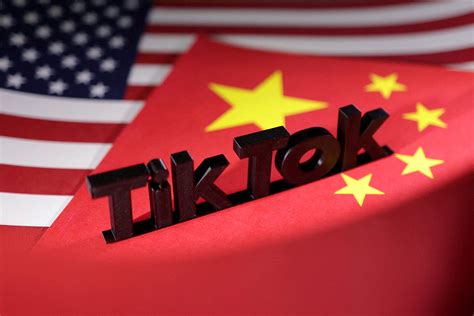The world of social media was abuzz with the latest news that the much-anticipated TikTok deal might be in jeopardy. Reports surfaced recently indicating that the deal, which was seen as a potential solution to various geopolitical tensions, has hit a roadblock.
China’s Influence
Sources close to the negotiations revealed that China has signaled its intentions to reject the proposed agreement due to concerns over tariffs. This unexpected development has left many industry experts and observers shocked and wondering about the future of one of the most talked-about tech deals in recent times.
TikTok’s International Journey
TikTok, a popular video-sharing app owned by Chinese company ByteDance, has been at the center of controversies related to data security and privacy concerns in several countries, including the United States. The app’s global success has made it a target for regulatory scrutiny and led to demands for changes in ownership structures to address national security worries.
As governments worldwide grapple with how to balance economic interests, national security considerations, and user privacy rights, TikTok finds itself navigating complex waters on its international expansion journey.
The Impact of Tariffs
Tariffs have long been a contentious issue in international trade relations, often used as a tool by governments to protect domestic industries or address perceived unfair trade practices by other countries. In this case, China’s stance on tariffs appears to have significant implications for TikTok’s future prospects and its ability to operate seamlessly across borders.
Experts suggest that while tariffs are commonly associated with tangible goods like automobiles or agricultural products, their impact on digital services such as social media platforms is less understood but no less important. The intersection of technology and trade policy creates unique challenges that companies like TikTok must navigate with care.
Geopolitical Ramifications
The potential rejection of the TikTok deal over tariff issues underscores broader geopolitical tensions between major powers like China and the United States. As countries increasingly view technology as a strategic asset with implications for national security and economic competitiveness, discussions around data sovereignty, cross-border data flows, and foreign ownership of critical infrastructure become more complicated.
Analysts warn that failure to resolve these issues could lead to further fragmentation of cyberspace along political lines, limiting innovation and collaboration in an interconnected world where digital technologies play an ever-expanding role in daily life.
In conclusion, the uncertainty surrounding the fate of the TikTok deal serves as a stark reminder of the complexities inherent in today’s globalized economy. The interplay between technology companies seeking market access and governments asserting regulatory control reflects larger debates about sovereignty, security, and fairness in an increasingly digital world. As stakeholders await further developments in this ongoing saga, one thing remains clear – navigating geopolitics in the digital age is no easy feat.

